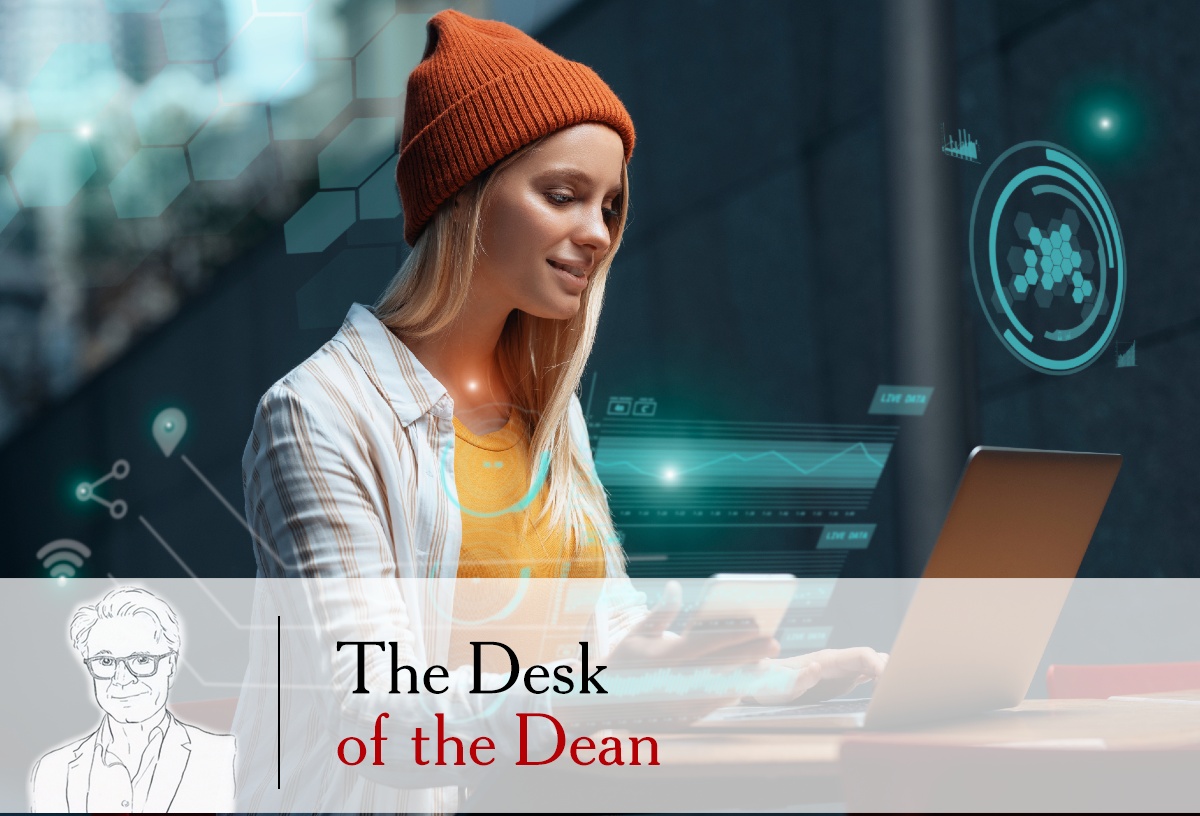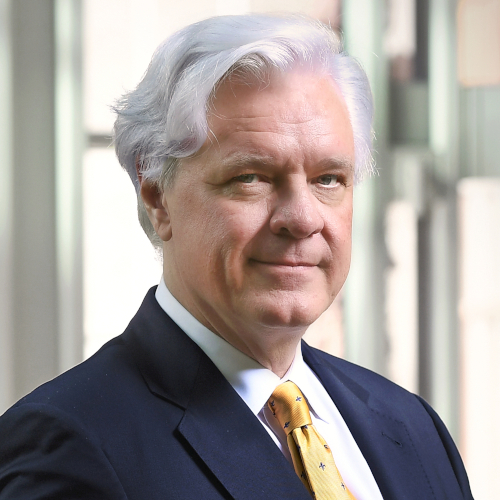WashU Olin: Equipped for an ever-evolving business world
- May 13, 2022
- By Mark Taylor
- 3 minute read

On January 24, 2020, WashU’s IT department sent an email to everyone at the university. Eight days later, it said, we each would have a personalized Zoom account. It seemed at the time to be a novelty, a nice new feature to try.
Little did we know. Within six weeks, Zoom was indispensable.
Within two years, we’ve been forced to entirely reexamine how we approach our careers and our education. In addition to its toll on so many lives, the pandemic has forced us to reassess and reappraise our roles as business leaders and educators.
Consider, for example, how we have recognized demand for digital education in ways I had not anticipated. That’s illustrated by the impressive debut cohort for WashU Olin’s new online MBA program—a program we hadn’t planned to launch before the pandemic. A program, indeed, that’s already attracting strong interest for a second cohort.
Navigating new ways of working
Consider also the experience of Olin students and corporate recruiters as they negotiate job offers in a post-pandemic world. Jen Whitten, associate dean and director of the Weston Career Center, says they’re confronting issues around hybrid working arrangements and remote work. They’re grappling with compensation models thrown askew by the separation of geography (cost of living) from the actual workplace.
Job candidates ask themselves now: Can I do my job remotely while I travel? How will simple things like the cost of commuting and parking factor into my job satisfaction?
“These are the conversations students are talking about,” Jen said. “Candidates are weighing all these things against what other companies are offering. They have a new set of things they can evaluate as they make a decision.”
The digital environment changes the way we work. At the same time, it is amplifying new attitudes about work that have come to roost during this global crisis. These attitudes underpin the zeitgeist of “The Great Resignation,” a trend well-documented in a recent edition of The New York Times Magazine.
‘Essential feature of capitalism’
And, as BlackRock CEO Larry Fink pointed out in his latest letter to CEOs from January 2022, these attitudes are forcing business leaders to respond.
“Workers demanding more from their employers is an essential feature of effective capitalism,” he wrote. “It drives prosperity and creates a more competitive landscape for talent, pushing companies to create better, more innovative environments for their employees—actions that will help them achieve greater profits for their shareholders.”
Yet even as Fink positions these trends as an appropriate manifestation of capitalism, I also recognize that today’s students are questioning everything—even capitalism itself—as my colleague at Columbia Business School, Glenn Hubbard, examined in The Atlantic in January.
“If these students are harboring doubts about the free market, business leaders need to take notice,” he writes. “But many Millennial and Generation Z Americans have come of age amid dislocations that give even MBA students pause about capitalism.”
In this context, business leaders and educators must be more circumspect about a world that simply requires people to show up in offices and do their jobs. At Olin, we are opening ourselves to ways of working that embrace virtual offices and hybrid arrangements not for the convenience it offers to workers, but for the ways it can foster inclusivity and participation.
That is why Jen and the WCC are calling out these trends—and helping students respond. The need for inclusivity and global understanding is what’s behind the global immersion for Olin MBAs. It’s why we’ve invested heavily in the Center for Digital Education and expanded opportunities for online education.
And as a school that champions values-based, data-driven decision-making—preparing students to change the world, for good—we continue to embrace our responsibility to confront these questions and equip students to succeed in an ever-evolving global business world.
Media inquiries
For assistance with media inquiries and to find faculty experts, please contact Washington University Marketing & Communications.
Monday–Friday, 8:30 to 5 p.m.
Sara Savat
Senior News Director, Business and Social Sciences
